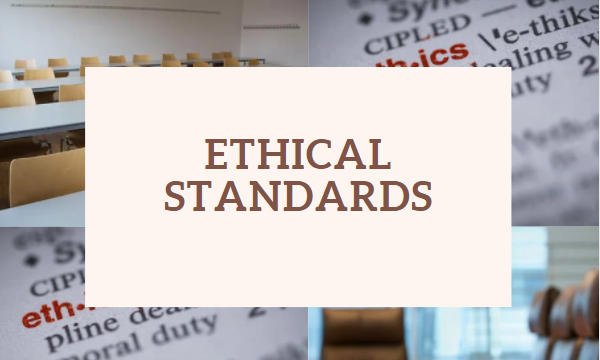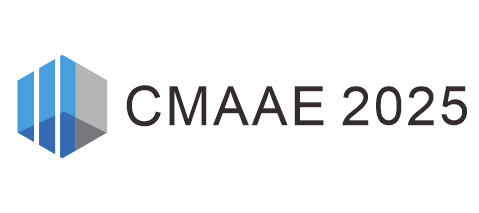Ethical Standards
 | Authors are required to follow all the listed standards in their submitted work to be presented and published at CMAAE. Please read through the standards before submitting. If you have any questions or need any assistance regarding ethical issues, please don't hesitate to contact us at email@cmaae.org. |
Please note that any policies, statements and opinions, endorsed or advocated in any presentations, documents, publications, news interview or website postings should be understood to be the position of the individual author or authors, and do not reflect the views of CMAAE or its organizers, committee members, or participants as a group.
We are committed to creating a welcoming and respectful environment for all participants and foster the exchange of scientific ideas at CMAAE. We firmly believe that any form of harassment or discrimination based on race, gender, religion, age etc. will not be tolerated. If you experience any such behavior during the conference, we encourage you to reach out to the Conference Staff or Chairs for assistance. Additionally, we kindly request that if you witness any such behavior, you consider intervening.
Authorship
Authorship should be limited to individuals who made significant intellectual contributions to the conception or design of the work, the acquisition, analysis or interpretation of data, drafting, reviewing or revising the manuscript, final approval of the final version of the paper to be published. Other contributors who do not meet the authorship criteria may be included in the Acknowledgement section of the paper.
Confidentiality
All individuals involved in the editorial process should not reveal any details of a manuscript or communications related to the process prior to its publication. Unpublished materials, documents, ideas and information obtained during the review process must be kept confidential and not used for the work of the editors or reviewers.
Originality
Papers submitted to the conference must not be previously published or accepted for publication elsewhere, must not be under review by any other conference or publication during the review cycle. Authors should ensure their work submitted to the conference is entirely original. If the work / words from other resources were used, they must be well cited or quoted. Authors are recommended to only cite relevant sources that legitimately contribute to the paper. Authors are obliged to disclose to the editor whether there are prior publications, and how the new submission differs from the previously published work.
Citation
Authors must cite the original sources appropriately when including information from other people's data, words, theories, or their own previously published research. A source citation must match a source reference in the reference list.
The using of someone else's work or ideas without properly citing the original author and the redundant reusing of authors’ own work without proper citation are unacceptable. All the papers will be submitted to iThenticate to check the overlapping material.
Competing Interest
A competing interest is anything that could be perceived to interfere with the objectivity of the research, presentation, peer review, decision-making and publication. All authors should disclose any financial and personal relationships with other people or organizations that could be viewed as inappropriately undermine the objectivity of their study.
Data Accuracy
Author should ensure all the data in the study should be accurate. Fabrication, falsification and manipulation of data (including image and tables) are intolerable behaviors and will lead to immediate rejection. As the raw data may be asked during the review process, authors are accountable for providing public access to the requested data in connection with their work.
After Publication
If fundamental errors or inaccuracy founded after the publication, authors are obliged to notify the conference for correcting or retracting their work.
Research using animals / human subjects
Any use of animals / human subjects for scientific purposes must comply with local laws, institutional regulations and widely accepted ethical guidelines, obtain appropriate written consents and permissions. Authors must clearly state their compliance with all relevant guidelines and institutional policies in their manuscripts if information of animals / human subjects has been contained in their research.
